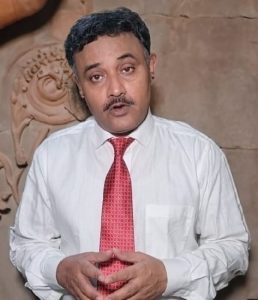
Madrasas came under the scrutiny of scholars, analysts, and politicians in the wake of the 9/11 attacks in the United States. During their initial examination, they discovered that these Islamic educational institutions had radicalized a large number of Taliban leaders and Al-Qaeda militants. In July 2004, the National Commission on Terrorist Attacks Upon the United States (also known as the 9-11 Commission) labeled madrasas as ‘incubators of violent extremism’. However, it was not made clear whether any of the 19 people who had carried out the 9-11 attacks themselves went to madrasas for their studies!
The next year, US secretary of defense Donald H. Rumsfeld stated that madrasas “train people to be suicide killers and extremists, violent extremists.”
As a result, this narrative about madrasas made Islamic seminaries vulnerable to criticism, despite the fact that studies have shown that just 11% of the 79 terrorists involved in the five biggest assaults on Western democracies had madrasa education. Similar criticism targets India’s madrasas, where pupils are labeled “terrorists” by the media.
In India, madrasas constitute a crucial part of the educational system. The country’s Muslim population has historically faced disproportionate educational disadvantages. Madrasas provide free basic education to millions of Muslims who are primarily from low-income families. They also act as a haven for the survival of Islamic culture. Madrasas are often the sole choice for poor Muslim families in many parts of the country if they want to give their children a rudimentary education.
In 2018, Prime Minister Narendra Modi declared, “The Government of India is leaving no stone unturned in empowering the Muslim youth. We want them to have the Quran in one hand and a computer in the other.”
However, Hindutva forces once again brought up this issue in order to further their political goals. This is one of their favorite ways to persecute Muslims and other religious minorities.
Radiance spoke with some well-known madrasa graduates who were successful in their various fields to learn the reality about the outrageous claims of ‘radicalization’ in madrasas.

Dr. Mohammad Ghitreef:
Research Associate, Centre for Promotion of Educational and Cultural Advancement of Muslims of India, AMU, Aligarh
The Sachar Committee report claims that 4% of Muslim youngsters attend madrasas, although the actual percentage is less than half of that. Some of these madrasas follow the Nadwatul Ulama Lucknow model, while others follow the Salafi model and a select handful follow the Islah and Falah model. However, a majority of madrasas continue to follow the Dars-e-Nizamia curriculum.
Since this educational system was developed during the Mughal era and was quite modern at the time, it produced not just theologians and muftis but also individuals in-charge of the civil government at that time. For instance, Saadullah Khan, a Mughal Wazir (minister), can be mentioned.
A very bright and positive aspect of the madrasa system is to educate millions of children who cannot afford expensive modern school education. Furthermore, if given enough encouragement and quality resources, some ambitious madrasa graduates can advance significantly with their diligence and commitment.
In addition to serving in the mosque and madrasa for little money, the Urdu language is alive by the madrasas. Our film industry takes advantage of this language and ungratefully names its production as Hindi film! Important libraries and archives of the country need madrasa graduates. Our country has close economic relations with the Arab world in import and export, that is why the interaction with the Arab world is increasing on a large scale, in which the graduates of madrasas and experts in the Arabic language help.
As far as the allegation that radicalization is taking place in madrasas, which teach the children to be religiously biased towards non-Muslims, is absolutely incorrect. We have a complaint about the madrasas that there is more focus on intra-faith prejudices and sectarianism than on pure Islam and that they are lagging in their curricula. Yet to say that madrasa is a hub of creating enmity or secession from the country or hatred towards the non-Muslim majority is a big lie.
READ: Muslims Lag in Higher Education, Says Government Survey
Islam respects other religions, their beliefs, and their religious personalities. How can then it teach hatred towards them?
In addition, no such report has been proved about any madrasa in India nor has any intelligence agency made such a claim. So only some people of BJP and its allied parties occasionally throw such baseless accusations in their voting belts or among bigoted Hindutva gatherings for their vested political interests aiming at polarization in the society.
Madrasas of India have no relation with the Taliban. Nor do they propagate the ideology of the same. On the contrary, major madrasas of India such as Deoband had opposed the partition of India and the Muslim League for that matter until the last moment.
 Mufti Muhammad Athar Shamsi
Mufti Muhammad Athar Shamsi
Director at Al Quran Academy, Kairana, Muzaffarnagar
The notion of ‘madrasas and radicalization’ is akin to the idea of ‘schools and radicalization’. Madrasa is simply an Arabic term for school. If someone were to accuse schools of being involved in the radicalization of their students, most people would dismiss such a claim without hesitation. However, it’s unfortunate that a significant portion of the population remains hesitant to reject the repeated accusations against Madrasas. What’s interesting is that there is no data, survey, or concrete evidence provided to support these allegations.
Consider this: if a few individuals got radicalized after receiving education in mainstream schools, it wouldn’t be reasonable to label all schools as radicalizing institutions. Similarly, it’s unjust to label Madrasas as radical based on the actions of a few individuals remotely associated with them. Such accusations are entirely unfounded.
The value of the curriculum taught in madrasas, an alternative form of education, is sometimes questioned. It’s important to stress that their entire curriculum does not encourage radicalization, though. If madrasas were institutions that radicalized people, we would see a sizable number of radicals come out of them every year. The fact that this isn’t the case shows how unfounded the accusation is.
Socioeconomic factors, political circumstances, and individual experiences all have a greater impact on radicalization than do educational systems alone. Instead of merely blaming Madrasas when some members of any community tend toward radical ideas, it’s critical to look at their financial circumstances and the treatment they receive at the hands of powerful elites.
External factors like online propaganda, peer pressure, and the broader geopolitical landscape play a substantial role in radicalization. The prevailing sense of persecution, whether justified or not, can push a community towards radical forces. Ongoing macro- and micro-aggression against a particular community can also contribute to the radicalization of some youths.
The path to countering radical forces lies in justice. This includes the spread of education, employment opportunities, respect for human rights, equality, and the dignity of all communities, in line with constitutional values. Without these foundations, the risk of radicalizing youth cannot be mitigated.
It’s imperative to address the sense of persecution within the Muslim community rather than leveling accusations against madrasas. Fighting radical forces requires a dual approach: first, ensuring equal treatment for all citizens in terms of rights, dignity, and justice; and second, combating radical ideologies on an intellectual level. We must convince our youth that joining radical forces is not a solution to contemporary issues and teach them non-violent means of advocating for their rights. By achieving justice for all and countering radical ideologies, we can diminish radical forces worldwide. Accusing Madrasas without addressing these core issues serves no real purpose.
 Faizul Haque, a Senior Journalist
Faizul Haque, a Senior Journalist
There is ignorance in the country about the Madrasa education system and its curriculum. There are a handful of people in the Muslim society as well as certain sections in mainstream politics who oppose it for their ulterior gains. It is unfortunate that even the informed agencies or circles do not come forward to dispel the notion behind this propaganda. Despite the fact that these Madrasas or Islamic seminaries neither have any political affiliation nor any political objective. But they were at the forefront in the struggle to gain freedom from British imperialists.
After the Independence of the country, they continued to focus only on teaching the Quran, Hadith (Holy Prophetic traditions), Fiqh (Islamic jurisprudence), etc. This helps the Muslim youth to learn Islam through direct sources, rather than get misled by the people who use religion for their dirty objectives. If there is any ‘radicalisation’ effort in the Muslim society, these Madrasas are best seminaries to ‘de-radicalise’ them. Here these Madrasas tell the youth: look directly into the Quran and Hadith to learn what Islam teaches you rather than following those who misguide in the name of Islam.
Some say that Madrasas are not required by Muslims. This statement is absurd because if there are no Madrasas, there will be nobody to lead five-time prayers, nobody will tell people what they have to recite in prayers, what they call during Azan (Adhan), what is the meaning of Ramadhan or month long fasting. If there will be no Madrasa, there will be nobody to teach the Muslim society that love and loyalty to the homeland is part of the Islamic teachings. If there will be no Madrasa, there will be nobody, for example, to tell the meaning of the verse 177 of the Chapter 2 of the Holy Quran that Allah wants you, among other mandatory things, to help all needy people without asking their religion, faith, caste and creed. “Those are the ones who have been true, and it is those who are the righteous,” said the verse.
If there will be no Madrasa, there will be ample opportunities for those who would misguide the Muslim youth for their dirty objectives.




